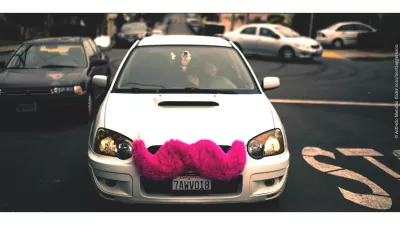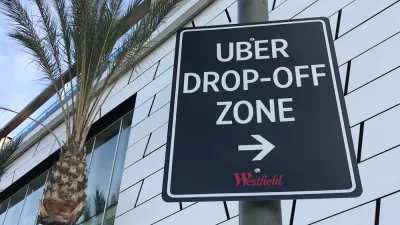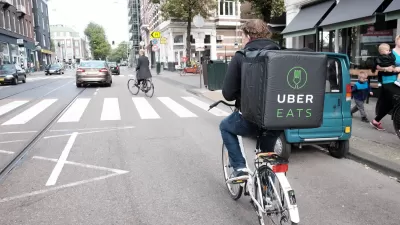Gabe Klein discusses some of the merits and challenges of forging private-public partnerships between disruptive companies and government entities.
Writing for Urban Land Magazine, Klein discusses private-public partnerships between companies within the sharing economy and governments. In particular, he reflects on his experiences working at Zipcar.
Noting how new services such as Uber and Lyft are helping cities fill transportation system gaps at a relatively low cost, these companies show, "that if government doesn’t pay attention to disruptive technology, new companies will find a way to work around the government... they have created a net-positive influence because they ultimately have shifted the balance of power in favor of consumers."
Unlike Uber and Lyft though, Zipcar worked hand in hand with governments to form a strong and effective partnership, "after many meetings with the powers that be in various cities including Washington, D.C., we figured it out together: a new local regulatory structure was born for 'car sharing' in most locales, which allowed us to operate and work toward profitability." With this new regulatory structure, governments provided high-profile parking spots and additional marketing, while Zipcar closed gaps in the transportation system.
Klein also outlines his key principles for successful PPPs: embrace and shape change, prioritize the public ahead of private interests, be flexible and compromise to benefit the public good and allow for profitability, and promote transparency.
FULL STORY: Access versus Ownership

Alabama: Trump Terminates Settlements for Black Communities Harmed By Raw Sewage
Trump deemed the landmark civil rights agreement “illegal DEI and environmental justice policy.”

Study: Maui’s Plan to Convert Vacation Rentals to Long-Term Housing Could Cause Nearly $1 Billion Economic Loss
The plan would reduce visitor accommodation by 25% resulting in 1,900 jobs lost.

Planetizen Federal Action Tracker
A weekly monitor of how Trump’s orders and actions are impacting planners and planning in America.

Waymo Gets Permission to Map SF’s Market Street
If allowed to operate on the traffic-restricted street, Waymo’s autonomous taxis would have a leg up over ride-hailing competitors — and counter the city’s efforts to grow bike and pedestrian on the thoroughfare.

Parklet Symposium Highlights the Success of Shared Spaces
Parklets got a boost during the Covid-19 pandemic, when the concept was translated to outdoor dining programs that offered restaurants a lifeline during the shutdown.

Federal Homelessness Agency Places Entire Staff on Leave
The U.S. Interagency Council on Homelessness is the only federal agency dedicated to preventing and ending homelessness.
Urban Design for Planners 1: Software Tools
This six-course series explores essential urban design concepts using open source software and equips planners with the tools they need to participate fully in the urban design process.
Planning for Universal Design
Learn the tools for implementing Universal Design in planning regulations.
Caltrans
Smith Gee Studio
Institute for Housing and Urban Development Studies (IHS)
City of Grandview
Harvard GSD Executive Education
Toledo-Lucas County Plan Commissions
Salt Lake City
NYU Wagner Graduate School of Public Service





























